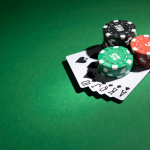When ranking casino table games, it’s impossible to leave out blackjack. The classic card game is a favourite for many players at Unibet UK thanks to its fascinating yet simple gameplay. Unlike other titles like slots, blackjack doesn’t depend on luck alone. You can also employ strategy to improve your odds and beat the dealer.
If you’re new to blackjack at Unibet UK, you may wonder what these strategies are. Well, it’s a good thing you’re reading this, as that’s precisely what we’ll cover in this article. We’ll detail all the tips and techniques to improve your blackjack skills and dominate the tables.
Understanding the Basics of Blackjack
In blackjack, the objective is to beat the dealer by having a hand value close to 21 without exceeding it. At the start of the game, you’ll receive two up cards. The dealer also gets two cards but with one face-down. Here’s a rundown of the different cards and their values:
- Number Cards (2 to 10): These cards are worth face value. In other words, a 2 counts as 2, a 3 as 3, and so on.
- Face Cards (King, Jack, Queen): The face cards are counted as 10 and are simply presented as K, J, and Q.
- Ace: This is the only card with double values: 1 and 11. An Ace will take any of the two numbers depending on the value of the other card.
After getting your cards, you’ll have to take actions such as hit, stand, split, or double down. Check out what each one implied below:
- Hit: When you hit, you collect an extra card with hopes of getting a value closer to 21. You can hit as many times as you want, provided your hand isn’t above 21.
- Stand: If you take this action, it means you don’t want to collect any new cards to improve your hand further.
- Split: You can split your hand when you have two cards of the same values. The cards become separate hands with an additional bet equal to your original stake.
- Double Down: By doubling down, you place a second stake equivalent to the first.
Once you’ve made your move, the dealer will then reveal their down card for comparison. Whoever has the closest hand to 21 without going over wins. If a hand is more than 21, it automatically loses. Meanwhile, if both hands are equal, the round is a push, and you’ll get your bet back.
As a beginner looking to play blackjack at Unibet UK, it’s crucial you understand the above fundamental details of how the card game works. Take the time to get familiar with them before using the advanced strategies we’ll explain next. That’ll ensure you don’t make basic mistakes that put you at a disadvantage.
Learning Basic Strategy
The blackjack basic strategy is one of the best ways to improve as a player if you’re new. How it works is quite simple. Usually, the basic strategy is available as a chart that indicates what action to take based on your hand and the dealer’s up card. In other words, you get guidelines on when to hit, stand, double down, or split.
Here’s a brief rundown of some examples:
- Hit: The basic blackjack strategy recommends hitting and getting an extra card if your hand is 8 or less.
- Stand: You’ll stand if your hand is 17 or more.
- Split: The basic technique is to split when you receive a pair of 8s or aces.
- Double Down: Based on basic strategy, the best moment to double down is if you have an 11 hand total and the dealer has 10.
Note that following the basic strategy doesn’t mean you’ll always win. However, it ensures you make the most optimal decisions in any given situation. Plus, it’ll help you avoid common beginner mistakes.
If you can, it helps to memorise the basic strategy. It may appear challenging initially, but as you play and practice, you’ll get used to it. Alternatively, you can keep a copy of the chart handy each time you play blackjack at Unibet Casino.
Managing Your Bankroll
At Unibet UK, players are constantly advised to stay responsible. This doesn’t only apply when at the blackjack table, but for all games. The basic instruction is to manage your bankroll by setting a budget before playing and sticking to it. Regardless of the results of each round, try not to exceed the limit. That way, you can avoid risking more than you can afford.
Here are other expert tips to help you manage your bankroll as you play blackjack:
- Set loss limits: This is the maximum amount you can comfortably lose in one session. If you reach the limit, you log out to avoid further losses.
- Set win losses: Similarly, it helps to specify a target amount to win in each session. Once you hit it, you walk away with the profit and not risk further.
- Use a reliable betting strategy: Like there are techniques to become a better blackjack player, there are also strategies to manage your stakes. One of the best is to not bet more than 1% to 2% of your total bankroll in a single hand.
- Split your bankroll: This is another betting strategy where you divide your bankroll based on the total number of hands you want to play. For instance, if you have £250 to play five hands, you can split it to £50 per.
- Track your sessions: Our fifth tip is to record your gameplay, taking note of wins and losses. In the long run, you can weigh both to know if your strategy is working or not.
Importantly, don’t chase losses while playing blackjack or any other casino game. Such is risky, as it means you’re making emotional decisions. Also, it can lead to more losses. Instead, follow our expert tips above to manage your bankroll and set loss limits.
Knowing When to Hit or Stand
In blackjack, the two actions you’ll make the most are hitting and standing. As explained earlier, you get a new card to improve your hand when you hit. Meanwhile, standing means maintaining your position, and the dealer can reveal their up card.
To know when to hit or stand, you’ll have to consider several factors. The most important is the dealer’s up card. If it’s weak — 2 to 6 — the dealer has a higher chance of bursting since they’ll hit multiple times. In such a situation, standing can be ideal. Meanwhile, a strong up card of 7 to Ace suggests a better chance of the dealer winning. The best thing is to hit and attempt to improve your hand.
Check out other examples to illustrate when to hit or stand:
- Your hand is 16, and the dealer’s up card is 10: In this case, you and the dealer are in a strong position. However, the dealer has the upper hand since the value of only one card is a high 10. If you hit, you risk bursting, but if you stand, the dealer can easily win if they receive a card higher than 6. So, the ideal option is to take a hit and hope for a low number to improve your hand.
- Your hand is 12, and the dealer’s up card is 4: Here, standing is the optimal decision. Why? Well, the dealer has a very weak hand, which means they’ll hit multiple times. In other words, there’s a high chance of the dealer bursting and you winning.
- Your hand is a soft 18, and the dealer’s up card is 9: A soft 18 implies getting an Ace + 7 — which can also count as an 8 since Aces are 11 or 1. In this case, the dealer has quite a good up card value and can quickly improve it with one or two new cards. Therefore, the best thing to do is to hit. If you get a low number, it’s best, and your hand can get to 20 or 21. Meanwhile, if it’s a high number, the ace automatically becomes 1, and you won’t burst.
It’s crucial to apply patience when deciding whether to hit or stand in blackjack. Don’t rush it, or you may make impulsive decisions and record losses. As explained earlier, you can simply go for a basic strategy chart to know the optimal move to take as you play.
Mastering the Art of Doubling Down and Splitting
While you won’t often double down or split as much as hit and stand, it’s still crucial to master how they work. These actions are also quite simple and can be beneficial if used at the right moment. For example, doubling down is ideal if you have a strong chance of winning with an extra card. So, you increase your bet for higher profits.
If you’re wondering when it’s best to double down, check out some instances below:
- You have a 10 or 11, and the dealer has less than 10: With such a hand, you can pull off a high value by hitting once. Meanwhile, the dealer will likely have to hit multiple times to beat your hand, which may cause them to burst.
- You have a soft 13-18, and the dealer has 2 to 6: If you get an Ace with 2 to 7, it’s a top opportunity to double down. Why? There’s little to no chance of bursting since the Ace will count as 1 if your hit takes your total to over 21.
When it comes to splitting, the target is to turn a weak hand into two strong ones. You’ll find it reliable when you have specific pairs that may lose or burst if left as they are. But when you separate them into two hands, you can build on them and win. Here are some ideal instances to watch out for:
- Pair of Aces: Generally, if you have two Aces, there’s no other option but to split. Two Aces can count as 2 or 22, and the former is a weak hand while the latter is a burst. But if you split, you get two 11-value hands — and both can easily win if you receive a new card.
- Pair of 8s: Two 8s gets you 16, which is quite a weak hand. If you split it into two hands of 8 each, a new card can significantly improve both.
- Pairs of 2s, 3s, or 7s with the dealer having 2 to 7: In this case, it’s ideal to split since the dealer is in a weak position. You can easily improve both hands by collecting new cards.
Understanding Dealer Rules and Odds
In blackjack, there are specific rules the dealer must follow. At Unibet UK, you’ll find different blackjack games to play, and each will have one of the below rules for the dealer:
- Hit on soft 17: In some blackjack variants, the dealer has to go for a new card if they receive an Ace and other cards totalling up to 6. Such a rule increases the house edge and lowers your odds of winning since the dealer can improve their hand.
- Stand on soft 17: Here’s a more favourable rule that benefits you as a player. Unlike the former, the dealer in blackjack variants with this option can’t improve their hand after receiving a soft 17.
- Hitting until 17: This is more or less the general rule for dealers in blackjack games. Basically, the deal has to hit until their hand total is 17 or higher. Then, they stand — irrespective of whether it’s a soft or hard 17.
Before you start playing any blackjack variant, it’s important to check out the rules the dealer must follow. That’ll guide your decisions when you receive your cards. From the broader point of view, it’ll also influence your overall strategy. Note that the dealer rules, house advantage, and your odds of winning are all connected. Depending on the rules, the house edge in blackjack generally ranges from 0.5% to 2%.
Practising with Free Games
Our final tip if you want to dominate blackjack tables as a beginner is simple: Practice. It may not make you perfect, but it’ll 100% improve your understanding of the game. Over time, you become an expert player.
At Unibet UK, you’ll find many free blackjack titles to play in demo mode. These options have the same features and gameplay as the real deal when betting actual money. However, you play with virtual credits with zero financial risks.
So, we recommend you sign up with the casino and start practising with the free games. Test the different strategies we’ve covered in this guide, from basic to advanced. If you follow this tip, rest assured that it won’t take long to become more comfortable with the pace and flow of blackjack.
Try out Blackjack for Yourself
If you’re a beginner, becoming good and better at blackjack doesn’t have to be challenging. All you have to do is know the basic strategy and the right moves to make each time. As we explained, it’s also essential to properly manage your bankroll and understand the odds.
The good thing is that you can apply all the strategies in this guide on our site. When you sign up at Unibet UK, you get access to diverse blackjack games from several top providers. You can start playing for free in demo mode and switch to real money once you master your strategies.


